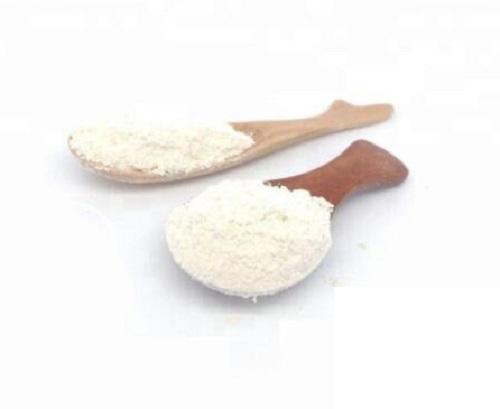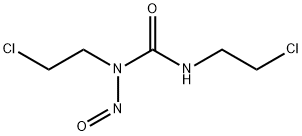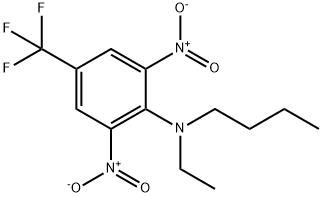Bischloroethyl nitrosourea —Mechanism of Action
Bischloroethyl nitrosourea (BCNU) is a mustard-gas-derived alkylating agent that underwent clinical trials for use as an antineoplastic agent in the mid-1960s. Intravenous BCNU received US Food and Drug Administration (FDA) approval for brain tumor treatments in 1977. Further development and trials led to the FDA approval of a BCNU-impregnated polymer wafer for use as an intracavity surgical adjunct for recurrent glioblastoma moltiforme in 1996. These wafers were again reapproved in 2003 for use in high-grade malignant glioma as an adjunct to surgery and radiation.

Uses
Bischloroethyl nitrosourea has been used in human medicine as an antineoplastic agent (alone or in combination with other agents) in the treatment of Hodgkin’s lymphoma, multiple myeloma, and primary or metastatic brain tumors.
Environmental Fate
There is no information available on the environmental fate of Bischloroethyl nitrosourea. However, it is predicted that BCNU spontaneously decomposes due to its high reactivity. Estimates indicate that the half-life of BCNU particulates and vapor in air is 4.4 days. Though expected to be highly mobile when adsorbed to soil and suspended solids, it is likely that this adsorption may be precluded by hydrolysis. Volatilization from soil or water is not expected, and the potential for bioaccumulation is low. BCNU degrades into 2-chloroethylamine, which is not considered hazardous to the environment.
Mechanism of Action
It is generally assumed that Bischloroethyl nitrosourea exerts its cytotoxicity through the liberation of alkylating and carbamoylating moieties. An alkylating entity, particularly chloroethyl carbonium ion, is strongly electrophilic and can alkylate a variety of biomolecules, including the purine and pyrimidine bases of DNA. Bischloroethyl nitrosourea causes DNA interstrand cross-linking, which is associated with cytotoxicity. The carbamoylation of lysine residues of protein can inactivate certain enzymes, thus interfering with DNA and RNA synthesis and repair processes. The inhibition of glutathione reductase by this carbamoylation further contributes to cytotoxicity.
Lastest Price from Carmustine manufacturers

US $0.00-0.00/kg2025-12-13
- CAS:
- 154-93-8
- Min. Order:
- 1kg
- Purity:
- 98%
- Supply Ability:
- 1000

US $1.00/KG2025-08-30
- CAS:
- 154-93-8
- Min. Order:
- 1KG
- Purity:
- 98%
- Supply Ability:
- 20T


